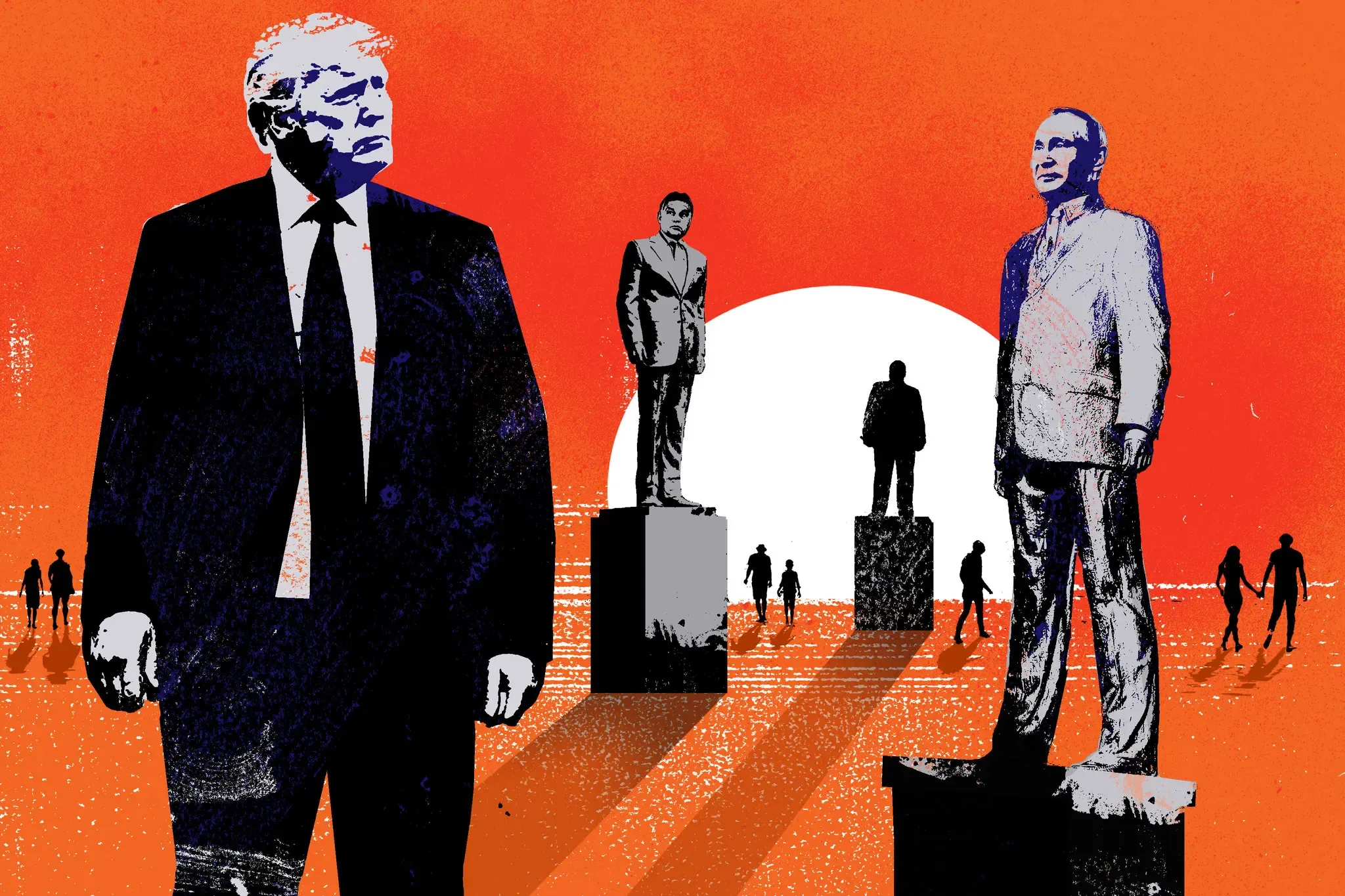Published with the generous permission of Ruth Ben-Ghiat. Read all of her outstanding writing in her Lucid newsletter.
By Ruth Ben-Ghiat
"We know how damaged our institutions of democracy — our judiciary, the legislature, the executive — have become in the eyes of the American people, even the world, from attacks within over the past few years," President Joe Biden stated soberly in a late September speech. "We should all remember: democracies don't have to die at the end of a rifle. They can die when people are silent — when they fail to stand up or condemn threats to democracy."
Biden's words illuminate how autocracies take hold. Autocrats seek to create a climate of fear in societies so that silence about their crimes will become the norm. They use the threat and reality of violence not just against their usual targets —the press, opposition parties, judges, and more— but against the elites of their parties as a means of keeping them in line. Those elites, in turn, threaten others to prove their loyalty to the leader and maintain their position in the hierarchy of thugs.
The wave of threat from above creates a negative synergy with grassroots supporters, who feel empowered to stage their own actions, whether that means threatening phone calls, stalking, or physical attacks. It is little wonder that silence and self-censorship become the norm, both in strongman states where saying the "wrong" thing can have fatal results, and in damaged democracies such as our own.
Biden spoke out about the deadly toll of silence in the face of threat because we have reached a crisis point in America on this issue. In keeping with the GOP's transformation into an autocratic party, making threats is now a normal activity for Republican politicians and their supporters, to the extent that threatening others is now "interwoven with the process of government," in historian Joanne Freeman's words.
That threat figured so prominently in the drama around choosing a House Speaker is just the latest example. Threats to members of Congress are up 400% since 2017, as per a May 2023 Capitol Police study—2017 marking the ascent to power of Donald Trump, a man with decades of experience in the art of threat. U.S. Capitol Police Chief Tom Manger feels that his department must be transformed into a "protective agency" to adequately deal with the volume of threats, and yet silence has largely prevailed on this subject.
Indeed, GOP Reps. Don Bacon (Neb.), Ken Buck (Colo.) and Mariannette Miller-Meeks (IA) made news when they took the rare step of publicly denouncing threats made to them and their families after they refused to support Trump's proxy Rep. Jim Jordan (R-OH) for House Speaker.
Some sense of the gravity of the situation may be gleaned by Rep. Bacon's disclosure that his wife sleeps with a loaded gun under her pillow. Yet Rep. Miller-Meeks (who had voted in an earlier round for Jordan) felt obliged to recite her conservative credentials while explaining to her constituents and the GOP voter base that “[s]someone who threatens another with bodily harm or tries to suppress differing opinions undermines opportunity for unity and regard for freedom of speech."
Of course, freedom of speech, if it violates the party line set by Trump, has no meaning for the current GOP leadership. It accedes to Trump's needs and wishes on this and all other issues as though he were an all-powerful dictator rather than a man who has been out of power for years and is in a boatload of legal trouble.
When political parties discard pluralism and tolerance for intimidation (vote for the leader's candidate or else!), when that leader has made violence his brand, and when he and his allies have been able to persuade 1 out of 5 Americans that violence can be a legitimate and sometimes necessary way to solve political and societal problems, the stage is set for a transition to autocratic governance.
I laid a path for analyzing the Trump years in this light in my 2020 book Strongmen, which was the scholarly product of my private alarm as a first-generation American at seeing the dynamics of threat and control familiar to me from my studies of Fascism come to America. It's why I so often cite Trump's landmark declaration in Jan. 2016, “I could stand on Fifth Avenue and shoot someone and not lose any voters,” which signaled his sympathies for violence and his belief (which has proved correct) that he would be loved for his abilities to instigate and commit violent acts.
It is why I wrote an opinion piece in December 2016 for CNN that documented Trump's instigation of cycles of threat against anyone who exposed his lies—in this case Chuck Jones, head of a steelworkers' union in Indiana, who accused Trump of lying about the number of jobs he would bring to that state. "Within half an hour, the menacing messages begin," I wrote. “'You better keep your eye on your kids,” Trump's supporters told Jones. “We know what car you drive.'"
The Republican politicians who gave Trump the nomination likely never imagined he would turn on them. But then the investigations and impeachments happened, bringing a tightening of the vise on the party. "In the United States Senate, like in many spheres of life, fear does the business," wrote then-Senator Sherrod Brown (D-OH) in a Feb. 2020 op-ed about his Republican colleagues acquitting Trump out of fear and the epidemic of silence that fear occasioned.
By Feb. 2021, on the occasion of Trump's second impeachment, some Republicans who voted to impeach had been persuaded by the waves of threat to buy body armor "Our expectation is that somebody may try to kill us," said Rep. Peter Meijer (R-Mich.), by way of explanation.
The study of authoritarianism gives us plenty of knowledge about the psychological damage produced by a culture of threat. In an established police state, threat lies at one end of the spectrum of harm, fostering subjection and self-policing. From Francisco Franco’s Spain, the philosopher José Ortega y Gasset reflected on how “the threat in my mind of an eventual violence, coercion, or sanction that other people are going to exercise against me” bred conformity.
The United States will never resemble Franco's dictatorship. And yet we are living through the conditioning of an entire political class —individuals who don't risk arrest by secret police or falling out of windows— to stay silent when they and their colleagues are threatened and raise their hands in displays of loyalty on command. The double tragedy of the GOP is that some Republican elites still think they will be exempt from those threats and others are self-censoring preventively.
"Fear has a way of bending us," wrote Brown in 2020. Using threat to refashion the GOP into his pliant tool, mainstreaming political violence, and instigating the Jan. 6 coup attempt to break countless taboos about violence against elected officials will be Trump's greatest legacies, whether or not he succeeds in returning to office in 2025.











